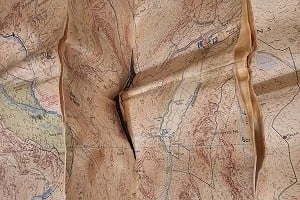
Getting outdoors may be a rewarding way to boost health and wellbeing, but rates of participation are uneven across the population, with people from an ethnic minority background, people with disabilities, and women, among those less likely to enjoy the benefits. As the outdoor community works to even things up, many believe it would help to have more detailed participation figures. A new research project, Your Movement Matters, is investigating the demographics of people who go walking and climbing in the UK and Ireland.
This includes a public survey - and here's where you can get involved, says Emily Ankers, one of the researchers behind the project.
Walking is generally accepted as the most participated in outdoor activity in the UK and Ireland. Those who spend time in the outdoors in England are most likely to walk, hike or ramble, with 27% of participants taking part in walking related activities.[1] Climbing too is incredibly popular, with over one million people climbing independently indoors in the UK. [2] Of those who regularly climb indoors in the UK, 48% of participants also regularly climb outdoors.[3] With increased attention being paid to diversity and inclusion in walking, climbing and outdoor related activities, it has become obvious to researchers and organisations that there is a lack of available and high-quality data that tells us who is and who is not participating. You don't sign in to a National Park, the mountains or your local park and therefore it is difficult to accurately know who is taking part in activities.
The information that we do have tells us that in England, those from an ethnic minority background are 60% less likely to visit the natural environment than the rest of the population,[4] the existence of personal disability or a long term-illness can be a significant constraint to participation in outdoor activities,[5] and women tend to participate in outdoor recreation at lower rates than men for reasons including societal gender expectations, lack of exposure and fear.[6] However, we have limited data of varying quality on participation in walking and climbing related activities by different faith groups, those who identify themselves as outside of the binary genders (female and male are the binary genders) and LGBTQIA+ participation, amongst other aspects of identity.
It is clear that we have problem with equity and diversity in the outdoors and organisations have started making changes to improve opportunities and services. You may be thinking, why do we need more data if we already know there is a problem? We acknowledge, praise and learn from those who are speaking out about lack of diversity and inclusion in the outdoors. It is important that organisations and individuals listen to those who are speaking out, telling us what the issues, constraints and barriers are. This research project does not seek to discover lots of new ideas, but to develop the resources and quality of data available to support driving change. We will always elevate those who are already putting in work with positive impact and hope that the data we generate can further support efforts. This is about working collaboratively to reach our goal of a more inclusive outdoors. A high-quality data set also means that we can measure how successful initiatives and changes have been when we look back in future years.
Earlier this year Mountain Training commissioned Leeds Beckett University to conduct a large-scale study investigating participant demographics in walking and climbing related activities. My name is Emily Ankers and I am working alongside Dr Chris Kay on this project with the support of professors with the relevant expertise (for example, staff from The Centre for Social Justice in Sport & Society). At the end of April 2021 we will be launching the 'Your movement matters' survey to gather data that will give us a better understanding of who is and who is not participating in walking and climbing related activities in the UK and Ireland. We need as many adults (age 16+) as possible to take part in the survey. This means no matter what your background, age, gender, sexual orientation, ethnic background, faith, socio-economic status, if you have a disability or not, mental-health condition and wherever you live within the UK and Ireland, we want to hear from you. If you're a seasoned mountaineer, you walk your dog in the local park, you climb indoors occasionally or regularly all year round or, you don't do any of these activities. We cannot stress it enough, there is literally no adult in the UK or Ireland who is not welcome to take part.
There can sometimes be a degree of mystery surrounding academic level research. I'm writing this article from my point of view as a researcher, but I am a real person, I'm not a formal and a faceless researcher and I'm certainly not scary. I thought it would be useful to explain how we do research and some of the challenges we often come up against.
With this project, one of the first major steps has been conducting a large-scale rapid literature review of all available texts including academic research, organisation reports and other information held within the industry to see what's already out there. A major challenge at this stage has been the sheer amount of "no data" or lack of detail available. I mentioned that we have a lack of data for faith groups' participation in walking and climbing, and indeed if you filter data for England by faith and walking and climbing related activities, it largely returns "no data, no data."[7] This is frustrating but it does also tell us that we need to collect this information.
Often, data is lacking because either the groups have not been reached by research projects, the question have not been asked before or people skip the questions. When the 'Your movement matters' survey goes live, there will be questions that you can skip, we can't make anyone answer a question that they don't want to (*important* all data and information will be anonymous). People have perfectly valid reasons for skipping questions but sometimes, it can be a case of personal perception on how important you think a question is. For example, you see a question asking for gender and you may think "oh, well gender is not important to me because I think that all genders are equal and I treat all with respect." Gender equality, we like it, but that's not a reason to skip a question. It removes detail from our data when we really need to know what the gender participation in walking and climbing related activities is. We need the most accurate and detailed data to help us make sure that all people can access the opportunities they need to participate in activities.
Surveys often give you pre-set categories and sometimes you feel you don't fit any of them. The 'Your movement matters' survey will include a mixture of pre-set categories for convenience and if you feel like you want to write an answer that most accurately represents you, then it's important you do that. We want to find out about you, your participation and your experiences. If you do participate in hill walking, why? What is it about hill walking that you value? If you don't, how come? What are your perceptions? We call this participant-centered research. This research project is about you, your views and your movement.
So mow that the Your Movement Matters survey has gone live, we would be incredibly grateful if you participated and answered the questions to the best of your ability. Updates will go live via the funding partners, supporting organisations and individuals. Your movement matters to us and we can't wait to hear about your experiences.
- Insta: @yrmovementmatters
- Twitter: @yourmovementmat
This research is funded by Mountain Training, the British Mountaineering Council, the Association of British Climbing Walls, NICAS, the Ramblers, the Camping and Caravanning Club, the Outdoor Industries Association and Plas y Brenin.
This research is being conducted by the Carnegie School of Sport, Leeds Beckett University.
Contacts: e.ankers@leedsbeckett.ac.uk , chris.kay@leedsbeckett.ac.uk and nicola@mountain-training.org
References:
[1] OIA and Sport England, Getting Active Outdoors: A study of Demography, Motivation, Participation and Provision in Outdoor Sport and Recreation in England, 2015.
[2] Natalie Berry, Social Climbers - The Evolving Indoor Climbing Industry, 2018.
[3] Crystal Market Research, The State of Indoor Climbing in the UK Quantitative Market Research Findings conducted for The Association of British Climbing Walls, 2019.
[4] S. Evison, J. Burt, S. Preston, Kaleidoscope: Improving support for Black, Asian and Minority Ethnic communities to access services from the natural environment and heritage sectors. Natural England Commissioned Reports, 2017.
[5] OIA and Sport England, Getting Active Outdoors: A study of Demography, Motivation, Participation and Provision in Outdoor Sport and Recreation in England, 2015.
[6] K. Evans and D.M. Anderson, 'It's never turned me back': female mountain guides' constraint negotiation. Annals of Leisure Research, 2018. 21(1): p. 9-31
[7] Active Lives Survey Data, Nov 2018 – 2019.

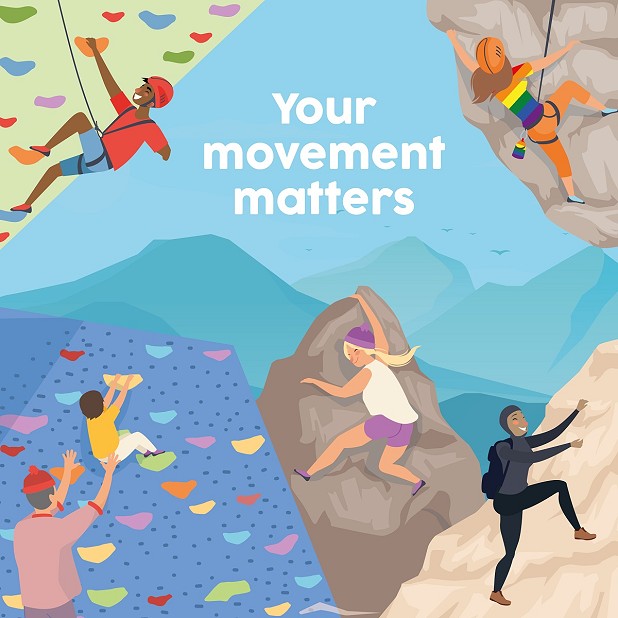
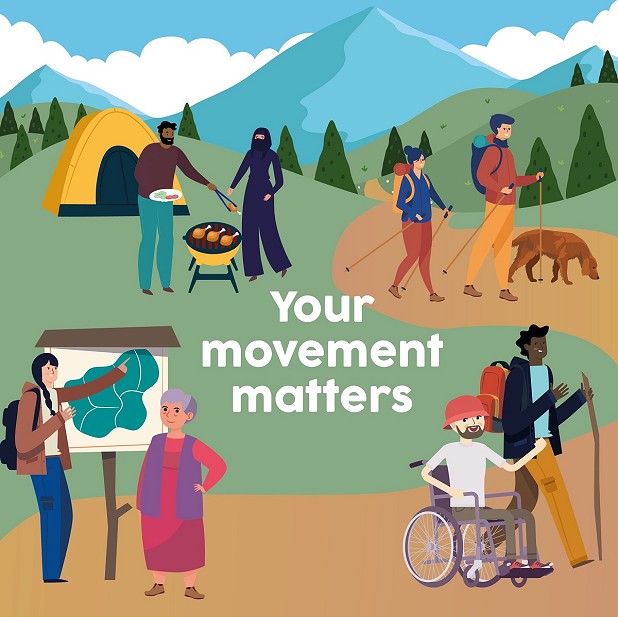



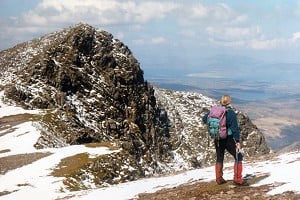
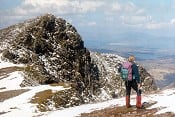
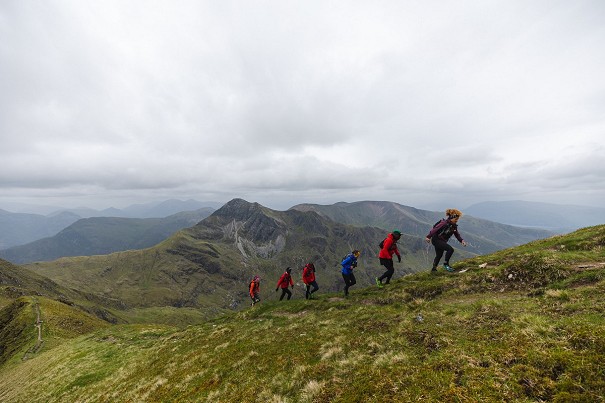
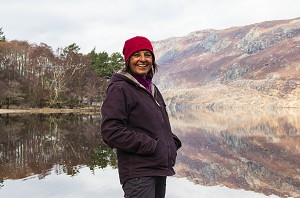
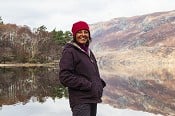
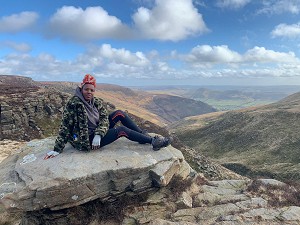
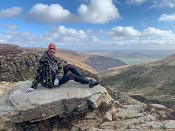
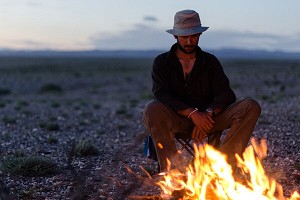
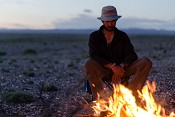


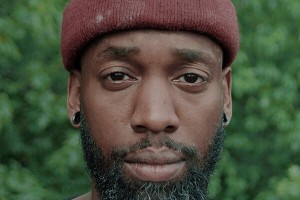
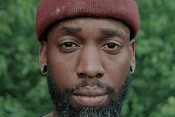


Comments
This looks like it might be a politically commendable but methodologically questionable exercise. It’s foreseeable that the resulting statistics will only reflect the demography of self-selecting respondents – those motivated to respond to such a survey. Just what this sample may be representative of could be hard to unravel. I’m not convinced it will reflect the population of participants in (a very wide range of) outdoor activities.
Starting out with a conclusion in mind isn’t generally the best way to frame the intro to a survey questionnaire as it sets up a proposition bias from the outset. I‘m referring to...
“the benefits are not shared evenly, with people from an ethnic minority background, people with disabilities, and women, among those less likely to enjoy the benefits.”
If the proportions in the hills were to be the same as the proportions in society, how many of each minority should represent ‘fair representation’. Scotland, for example, had 2.6% Asian and 0.12% Black population in 2011. Broadly 1 in 50 and 1 in 1000 resp. Numbers like these would be ‘noise’ even in most quantitative sample surveys.
Does the survey interest me as a (probable) majority demographic to participate? Or am I demotivated by the meta-influence I think a response like mine will have? How many would-be respondents are thinking the same? How are tailored individual responses (essay answers) incorporated statistically? Context, and any inferences premised on randomisation of samples, are going to be the missing pieces for interpretation of your responses.
Another issue is the categorisations suggested. Being ‘a minority’ is a pretty broad qualification, and not all minorities are simple or unique for analysis purposes. Some are meaningful and some less so. There will always be minorities (a statistical truism) and departures from proportional representation in any population are not always significant or blameworthy.
So I think I see why your article is getting some 'down arrows'.
Very well said. It is a shame as this is potentially very valuable research. I would add two additional points:
Firstly I’ve seen this 60% figure before but it seems to me that it is not comparing like for like. As I understand it minority groups are much more likely to be younger and cluster in urban areas. It seems to me that to draw any clear conclusions you would need to compare minority groups to comparable majority populations, not majority populations as a whole. It may be that in comparable majority groups participation is also low.
Secondly there appears to be an assumption that walking and climbing are the principle ways in which minority groups should be accessing the outdoors. This appears at best presumptuous and at worst chauvinistic. From my personal experience outdoor picnics are popular throughout the world, whereas hill-walking is not. These would seem to me an equally legitimate way of enjoying the outdoors but would be missed in your data.
Also there is a spelling mistake in the final paragraph which does not help the overall presentation.
Your criticisms of the survey methodology are mostly quite fair, but I really hope they don't stop you or anyone else from completing the survey. No research is perfect and this survey is what we have right now, so why not use it? I did the survey yesterday, I personally quite enjoyed it. One thing I would say about the incorporation of essay answers statistically: this is nowadays a relatively straightforward task to perform in a statistically rigorous way, using machine learning tools to perform sentiment analysis and text classification along with a numeric assessment of the uncertainty in any data or models from which inferences are made. The underlying biases in interpretations made from this information are overall similar to the biases made in quantitative questioning, as far as I can see, and essay answers are useful in other ways (they can provide a diversity, specificity and richness of data that more quantitative approaches might not). So the essay questions are worth including in my view.
"...You don't sign in to a National Park, the mountains or your local park and therefore it is difficult to accurately know who is taking part in activities."
Of course the researchers could simply go out at a weekend to the local park car parks in Leeds or the Peak District car parks and TALK to people. Collect some (arguably) more meaningful statistics. But I guess that's not the modern way of doing social science (sic) research. Sigh.
Excellent point. And pretty obvious (in retrospect) when you look at the ethnic mix in the Chew Valley car park (for example) at a weekend and compare it to that on the moors and edges.